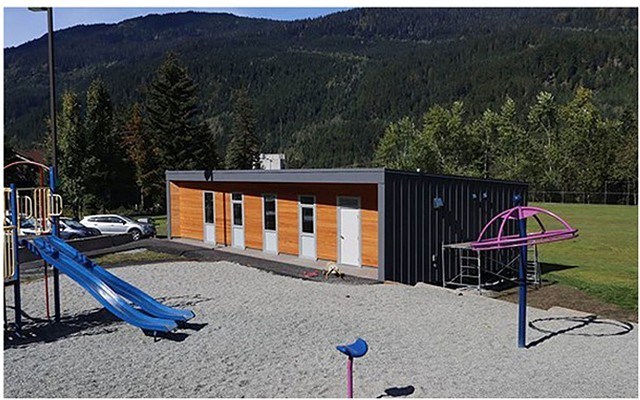Some parents with children in the French Immersion program at Spring Creek Community School are not at all impressed with a plan to implement three-way split classes next year, citing concerns around bullying, teacher burnout and the quality of education their children will receive.
In an email to parents in mid June, Spring Creek principal Stuart Bent explained that, while the specific configurations won't be finalized until September, the school is moving ahead with multi-age classrooms.
The plan is to have four multi-age classes next year (Grades 5/6/7 split—there are currently about 117 students enrolled in French Immersion at Spring Creek).
"Members of our team have consulted a large body of research and we have met with Spring Creek parents and guardians to discuss concerns and questions about multi-age groups," Bent wrote.
"In gathering all of this information, and taking into consideration the concerns of our families, we are confident that our design plan will be in the best interest of student learning."
But many parents feel the Sea to Sky School District (SD48) is not hearing their concerns.
Spring Creek had one 5/6/7 split class last year, as well as a straight Grade 5, 6 and 7 French Immersion classes. Anja Rodig's daughter was in the 5/6/7 split.
"The beginning, from September almost until January, it was very hard to get to her to go to school, just because of the situation in the classroom," Rodig said.
"You have children that have zero knowledge of French (like Rodig's daughter, who was in Grade 5 last year), and you have then a four-year age gap in the class, children with different developmental and emotional needs, and then you have Grade 7s that have two years (of) French already that have been disengaged at the beginning of the year."
Alison Gilchrest's daughter, Grade 7, was one of those cases.
"It was a really rough year ... I've got a really keen learner, pretty smart kid, and basically what happened is she just kind of turned off for the first four months," Gilchrest said.
"My real concern is how a teacher can teach to three grades."
Pique heard from six different parents who are concerned with the plan for multi-age classrooms, though Gilchrest said she knows of about 20 people who are opposed.
Many of the parents have met with Bent and SD48 officials, or written letters to voice their concerns, without getting satisfactory responses.
"It just goes in circles ... they talk a lot about their learning pathways that they're trying to change," Gilchrest said.
"And I'm fine with change, I just don't want my kids to be used as guinea pigs, because they're not providing any evidence that there's any statistics or anything about the three-grade splits, and how kids fare in the classes."
According to the district, the decision is "purely educational," and not based on staffing concerns or guidance from the province.
"The teachers are confident in their ability to work as a team to co-plan," said director of instruction Paul Lorette, in an email.
"Many schools that implement this approach experience community push back, because it is perceived as unusual and as being an approach that is more about efficiency. The strategy is really about student learning. The Ministry of Education curriculum is designed to work very well in multi-age classrooms. Class organization at the school level is under the responsibility of the school principal."
The use of multi-age classrooms is based on a "growing body of empirical research," said SD48 superintendent Lisa McCullough, in an email.
"(The research) documents the benefits of heterogeneous groupings, including multi-age environments, for both social emotional learning and cognitive development," McCullough said.
"These include a student's ability to recognize, understand, and effectively respond to emotions, manage stress, and be optimistic. They also include showing concern for others, sustaining healthy relationships, and making effective personal and social decisions." (The research cited—which includes classrooms with thee grades—can be found at www.sd48seatosky.org/education-plan-research-2012/. A district rep said more research would be added this week).
Whistler's school trustees, Rachael Lythe and Cynthia Higgins, have heard from concerned parents as well.
"We believe that this classroom configuration, composed in collaboration between the Spring Creek teachers and principal, complies with the strategic plan and the educational plan of our district," Lythe and Higgins said in a joint statement.
"We would encourage concerned parents to refer to our board policy 301 navigating district concerns. Here they will find the steps to having their voices heard. We do appreciate parents reaching out to us and trust our staff will be able to provide them with all the information that they need."




